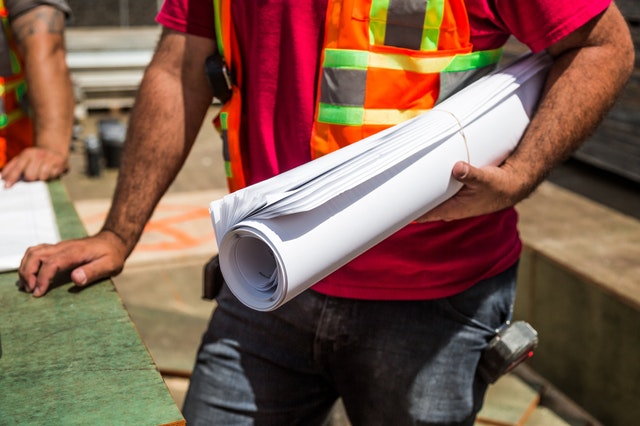 Buying a new home is a big step for individuals and families. This is a time for celebration as the new furniture gets moved in, everyone gets adjusted, and the honeymoon phase starts with the new home. On the other hand, buying a home also means that all of the responsibilities rest with the owners.
Buying a new home is a big step for individuals and families. This is a time for celebration as the new furniture gets moved in, everyone gets adjusted, and the honeymoon phase starts with the new home. On the other hand, buying a home also means that all of the responsibilities rest with the owners.
Here are a few common problems that new homeowners face.
Taking Care Of The Outside
Many homeowners are quick to realize that there is a tremendous amount of maintenance on the outside of the home. Now, the exterior is their responsibility and doesn’t fall on a landlord. Sure, it can be helpful to hire someone; however, this can be expensive.
Some of the common questions that homeowners have include how frequently they should water the lawn. There might also be questions regarding which type of fertilizer and when they should use this. Also, the issues caused by weeds can be substantial. When in doubt about these issues, simply reach out to a professional and ask for help. Someone is always willing to lend a helping hand.
Plumbing Issues Are Common
It is important to do a home inspection before buying a home. This will let the potential buyer know about any repairs they might be inheriting. Some of the common issues have to do with the plumbing system.
One of the most common issues has to do with clogs. Sometimes, the clog takes place in the sink when someone tries to force food down the drain. In other situations, toilets might get clogged if something other than toilet paper gets flushed down the toilet. While a basic plunger is a great place to start, it is also prudent to invest in some drain cleaner and a snake.
The Lights Go Out
Sometimes, people are shocked to see the power go out during a storm. In some cases, the power company may need to come out and handle the repairs. In other situations, it might be a tripped circuit breaker. When the power goes out, head to the circuit breaker and take a look at any fuses that might be turned off. Unplug some of the appliances and then turn the circuit breaker back on! This might do the trick, but if it goes out again, call an electrician.
If you are in the market for a new home or interested in listing your current property, be sure to consult with your trusted real estate professional.
 New housing construction starts reached a record high in December 2019 going up 16.9%. This represents a seasonally-adjusted annual rate of 1.608 million homes last December, which beat the record set in December 2006, 13 years ago, according to CNBC.
New housing construction starts reached a record high in December 2019 going up 16.9%. This represents a seasonally-adjusted annual rate of 1.608 million homes last December, which beat the record set in December 2006, 13 years ago, according to CNBC. Last week’s economic reports included readings on home prices, new and pending home sales and a statement from the Federal Reserve’s Federal Open Market Committee. The University of Michigan issued its monthly statement on consumer sentiment and weekly reports on mortgage rates and first-time jobless claims were also released.
Last week’s economic reports included readings on home prices, new and pending home sales and a statement from the Federal Reserve’s Federal Open Market Committee. The University of Michigan issued its monthly statement on consumer sentiment and weekly reports on mortgage rates and first-time jobless claims were also released. The Federal Open Market Committee of the Federal Reserve issued its scheduled post-meeting statement Wednesday. Policymakers unanimously decided to leave the target federal funds rate range unchanged at 1.50 to 1.75 percent.
The Federal Open Market Committee of the Federal Reserve issued its scheduled post-meeting statement Wednesday. Policymakers unanimously decided to leave the target federal funds rate range unchanged at 1.50 to 1.75 percent. Real estate, which is a rental property, has the unique characteristic under the tax code of being able to depreciate it and pretend the asset is going down in value, while, if you are a clever investor, you will acquire property that actually increases in value. Additionally, there are other tax advantages for owning a rental property that can help shelter income.
Real estate, which is a rental property, has the unique characteristic under the tax code of being able to depreciate it and pretend the asset is going down in value, while, if you are a clever investor, you will acquire property that actually increases in value. Additionally, there are other tax advantages for owning a rental property that can help shelter income. Case-Shiller Home Price Indices reported that national growth of home prices rose by 0.30 percent in November. Analysts said that slim inventories of available homes boosted home prices. Whether or not home price growth continues gaining speed depends on variables including supplies of homes for sale, affordability and home-buyer confidence in the economy.
Case-Shiller Home Price Indices reported that national growth of home prices rose by 0.30 percent in November. Analysts said that slim inventories of available homes boosted home prices. Whether or not home price growth continues gaining speed depends on variables including supplies of homes for sale, affordability and home-buyer confidence in the economy. Anyone who has paid attention to the TV recently has likely seen a lot of commercials for something called a reverse mortgage. For those who might not know, a reverse mortgage is exactly that. In this option, people receive monthly payments from a lender in exchange for equity in their homes. In essence, this functions as an annuity.
Anyone who has paid attention to the TV recently has likely seen a lot of commercials for something called a reverse mortgage. For those who might not know, a reverse mortgage is exactly that. In this option, people receive monthly payments from a lender in exchange for equity in their homes. In essence, this functions as an annuity. Last week’s economic reporting was slim due to the observance of the Martin Luther King Jr. holiday. The National Association of Realtors® reported on sales of previously owned homes and the Veterans Administration announced changes to its home loan programs. Weekly reports on mortgage rates and initial unemployment claims were also released.
Last week’s economic reporting was slim due to the observance of the Martin Luther King Jr. holiday. The National Association of Realtors® reported on sales of previously owned homes and the Veterans Administration announced changes to its home loan programs. Weekly reports on mortgage rates and initial unemployment claims were also released. When someone is looking to purchase a house, they need to think about how long they want their mortgage to last. While a bank can structure a mortgage to last for any number of years, the most common lengths are 15 and 30 years. While a 30-year mortgage is typically more affordable, a 15-year mortgage is cheaper overall.
When someone is looking to purchase a house, they need to think about how long they want their mortgage to last. While a bank can structure a mortgage to last for any number of years, the most common lengths are 15 and 30 years. While a 30-year mortgage is typically more affordable, a 15-year mortgage is cheaper overall.  For many people, owning a home is seen as a rite of passage. At the same time, purchasing a home is expensive. As a result, many people end up renting for an extended period of time.
For many people, owning a home is seen as a rite of passage. At the same time, purchasing a home is expensive. As a result, many people end up renting for an extended period of time.